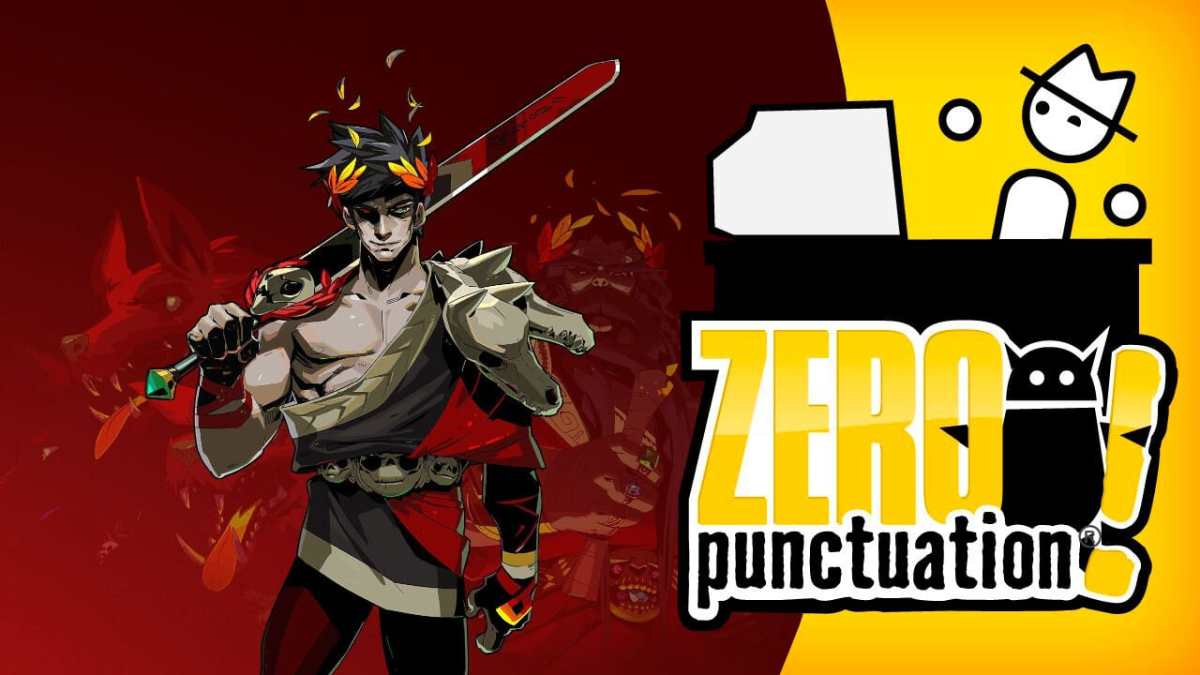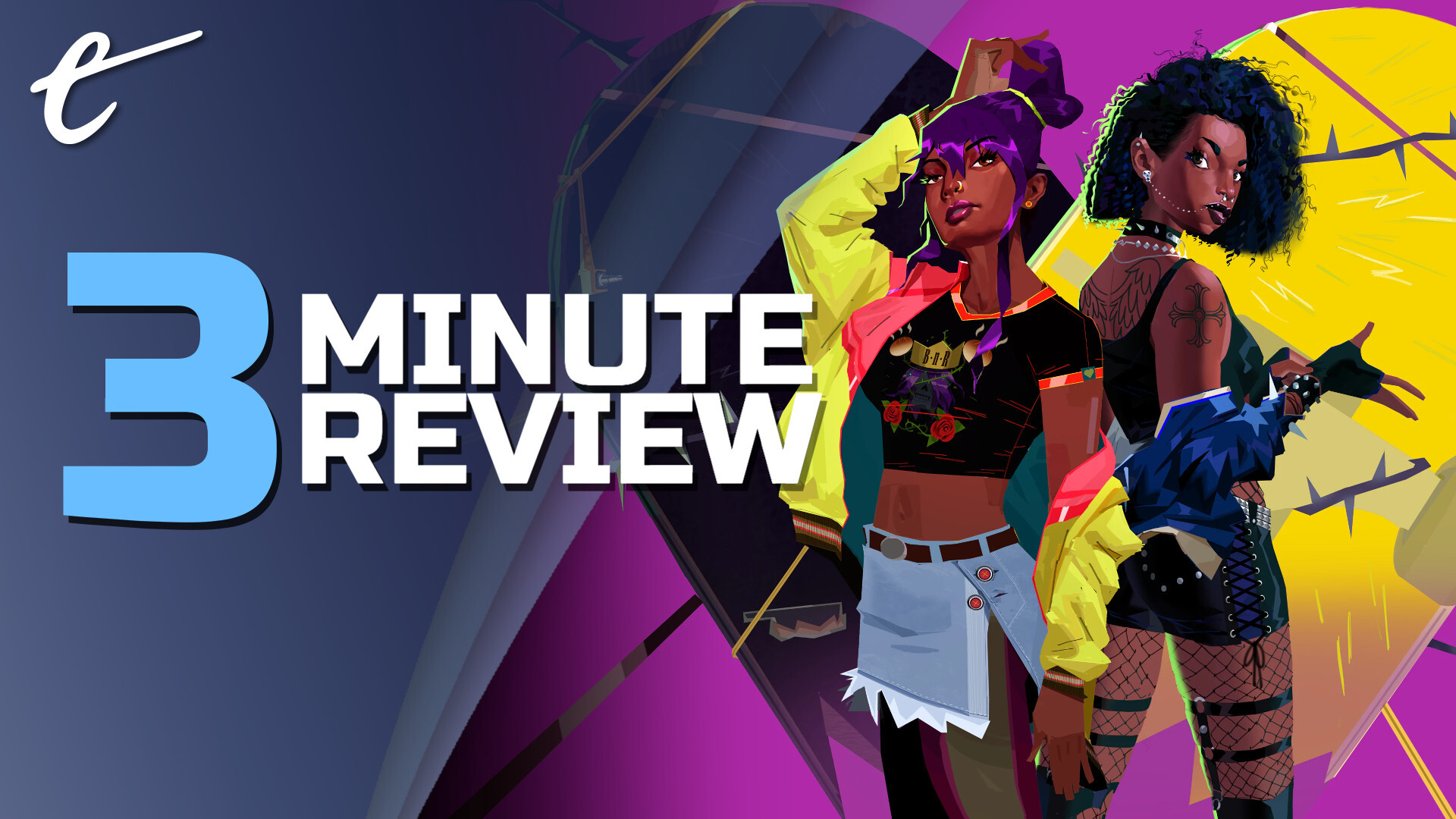Ah, ancient mythology, the wonderful gift from our ancestors that ensures pretentious writers will never be shy of a free idea bucket. Hey, is there any reason we can’t make up more mythology? Like if I wanted to invent Maurice the god of consumer electronics, or Rumblecrag the god of small utensils that get jammed in the kitchen drawer, can I do that, or do I have to paint them on a vase and wait a thousand years for it to count? Video games have always gotten a lot of mileage out of mythology, but it’s disappointing how it only ever seems to fall back on either Greek or Norse. I already know way too much about Greek and Norse mythology, why don’t you ever make games about Zoroastrianism? I don’t know anything about Zarathustra. I know that he spake once. Hades is a “new” game fresh off the fiery grill of early access, and as the title suggests, is themed around Greek mythology boo. But it’s by Supergiant Games, yay, so I guess I can forgive it. Supergiant Games have a very distinct style. You know you’re playing a Supergiant Game if it’s got colourful handpainted graphics, isometric gameplay, very strong writing focussed on worldbuilding and characters, and all the voice acting sounds like it’s coming from very sexy people.
Hades is a roguelike, boo, but again I can forgive it if Supergiant Games does it. Supergiant are one of my blue-eyed boy teacher’s pet indie developers because they’re always exploring new ways to tell stories through the medium of video game. They’re not content to just fade out to cinematic every three rooms so Marcus Fenix can pulsate his neck at someone. They’re generally not my favourite games to play, however; the combat usually gets a touch grindy when there is combat and the less said about Pyre the amazingly well written high school basketball simulator the better, but they’re certainly some of my favourite games to talk about. Hades is about Zagreus, the son of the titular deity, who has gotten sick of kicking around the depths of Tartarus playing Halo and very deliberately pretending not to notice the pamphlets for vocational schools his dad rather unsubtly keeps leaving on the coffee table, and so he decides to pull what’s known as the reverse Orpheus and journey out of the underworld for the first time in his life. And there’s nothing you can do to stop me, dad.
Um. I literally rule over legions of immortal warriors with nothing to do all day but try to stop you, Zagreus. Shut up, you never bought me a car. Hades is a hack and slash roguelite, and you know how that goes, death resets you to the start and re-randomizes the map so get ready for an experience like attempting to penetrate a brick wall by jabbing it with a sewing needle n+1 number of times. And since there are so many roguelikes now they can be subcategorised up the arse, Roguelikes and Roguelites and Roguelionels and Roguepatricias, Hades is of a Rogue Legacy sort of flavour where you do have to start from the beginning if you die but you have upgrades and resources that you keep from run to run, and so success is basically inevitable ‘cos if you just keep trying eventually you’ll be powered up enough to plow across the Grecian afterlife like a combine harvester in a petting zoo. Always the same brick wall, but eventually your sewing needle is made of titanium and the size of a tent peg and you know exactly where the mortar between the bricks has gone all crumbly. The Roguelike purists among you might get sniffy but the inevitable success model is more fitting for what Supergiant is trying to do, here, that is, tell a story with an ending.
Specifically, a mythic twist upon the ever relatable tale of wanting to go out and play but Dad won’t let us until we finish the washing up. See, since we’re dealing with immortal gods of the underworld, nobody dies for good and everyone’s aware of that, which is a natural fit for the whole roguelike many deaths thing. You die and you show up back in Hades’ vegetable garden, traipse back through the house, say hi to the first boss you killed who’s now kicking around the lounge waiting to tell you to piss off. Hades himself, the end boss, is there, just sitting in his armchair watching Inspector Morse and rolling his eyes at you ‘cos he said you’d hurt yourself if you went sledding at the quarry but you didn’t listen and now you’ve hurt yourself and he’s not mad, he’s just disappointed. There’s a whole bunch of interesting dynamics at play that are continually developing from run to run, it’s got more contextual dialogue lines than a frathouse laundry basket has mysterious smells and when you finally leave the house to start your next run it’s like having to leave the party early so you can get back to shovelling snow out of the driveway.
Not that there’s anything particularly wrong with the core combat, unless you’re using the gun weapon, which is about as satisfying to use as a spring-loaded tampon, but every other weapon has a good feel. It’s well animated and got all those little effects and flashy bits to make your blows really pop and land. But, well. I hesitate to say it gets samey. That’s kind of the point. Zagreus’ entire mission is to break free of the cycle, it’d be like complaining that Lord of the Rings spends way to much time on all this ring business. But twenty-odd runs down the line I was getting the sense that the combat had become something I was more slogging through than enjoying. The enemy health bars get a bit spongey and your button pressing gets a bit mashy and the action gets hard to follow amid all the swishy effects and altogether it becomes a very potato salad-y experience. There are enough elements in play between six different weapons, three kinds of attack, and multiple varieties of power-up that the core combat can feel quite different from run to run, but with that comes a sense that success comes not from gitting gud but from randomly stumbling upon a combination of powerups that best suits your style, or breaks the difficulty in half like a Kit Kat.
Just as I played Pyre on easiest difficulty because I liked the characters but really couldn’t be arsed to brush up on optimal dribbling strategies, I ended up turning on Hades’ optional easy mode that allegedly is for players who want to focus on the plot. But all it does is increase your defense 2% every time you die, accelerating the process of inevitable success but not by much, you still have to slog through a lot of repetitive combat to progress the story, because it turns out the slog IS the story, or at least part of it. As I said, Supergiant are very big on integrating narrative with gameplay and that’s very much what’s going on here, if Zagreus could just cruise through the underworld first go on a surfboard made of skeletons then you’d never get the intended sense of hopelessness, but even knowing that, the obligation to grind runs past the point where it starts feeling samey is what juuust loses me at the end. Still, Hades succeeds in an awful lot of areas. The art, design and story fits together like a hideously complex clockwork machine, perhaps to be expected since it’s been fiddling with itself on early access for so long that it’s palms have got callouses you could open beer bottles with.






Published: Oct 7, 2020 12:00 pm